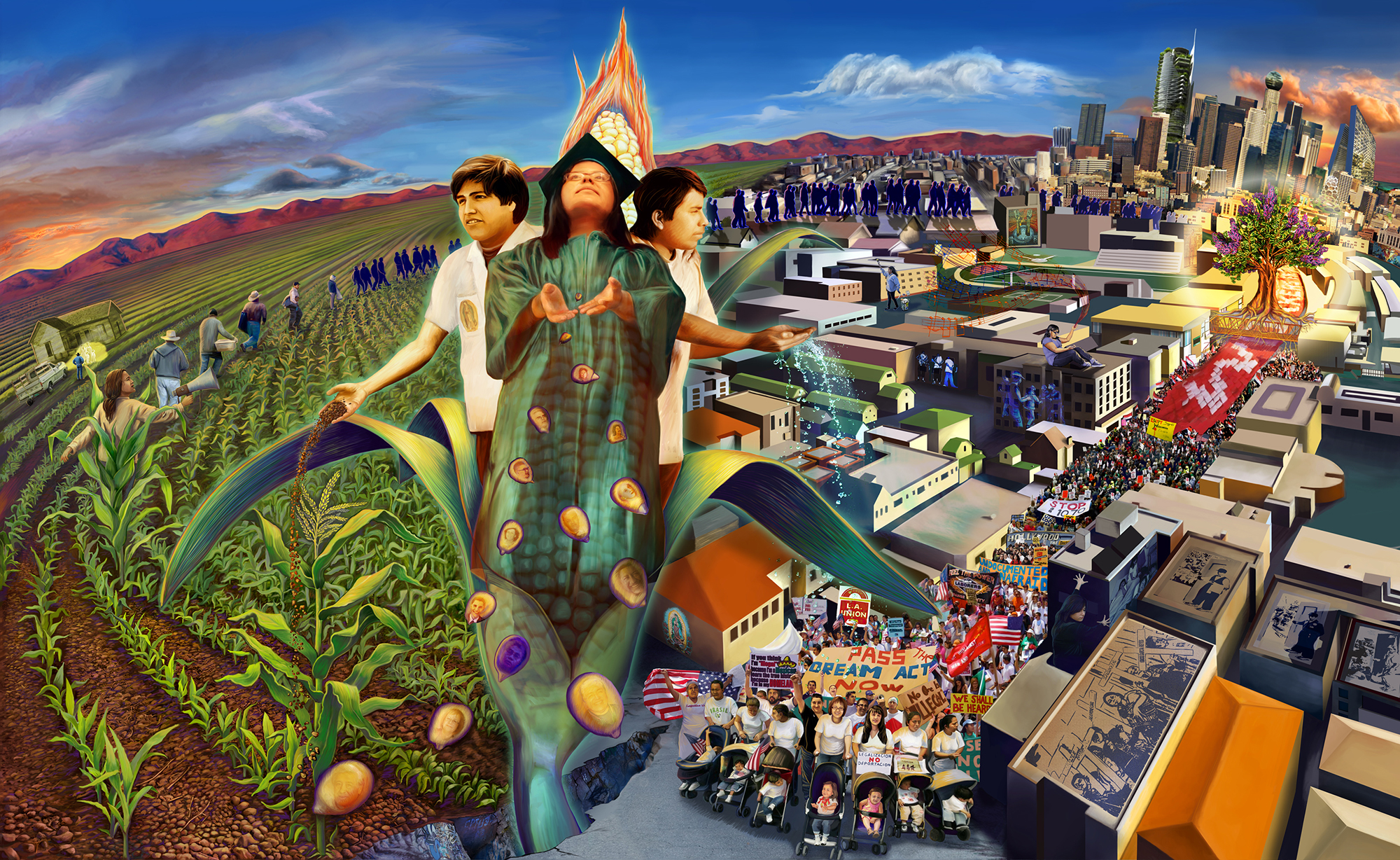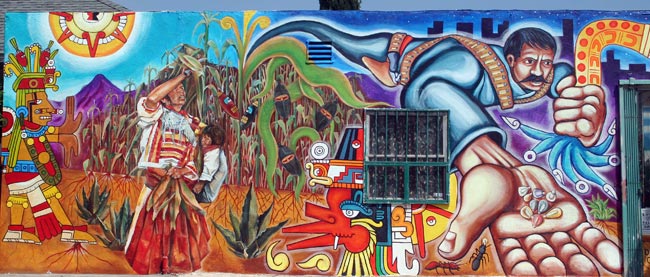
This is an introductory course designed to provide students with an overview and understanding of the social characteristics of Latinxs in the United States. In particular, the course critically examines the historical development and socio-cultural foundations of the multiple cultural groups that make up the people identified as Latina/o/xs. We will use history, literature, artistic expression, language, and other themes as a means to contextualize class discussion and learning objectives for the course. Overall, I encourage you to use these tools to evaluate your own assumptions about terms such as Hispanic, Latinos, and Chicanos and other national/racial/ethnic identities.
Topics in this course include colonization, migration, civil rights activism, education & language, and popular culture among others. Students will be exposed to historical, sociological, and literary texts on Latinx groups by national origin—Mexican Americans, Puerto Ricans, Cubans, Dominicans, Central and South Americans—and as a pan-ethnic community. We will use an intersectional lens to better understand Latinxs racial, class, gendered, nationalities, ethnicity, and sexual identities as a means to meet our goals and objectives this semester.
- Teacher: Brenda Garcia
- Teacher: Luzmarina Garcia
- Teacher: Stephanie Gomez-Perez
- Teacher: Christian Ramirez

- Teacher: Christian Ramirez
- Teacher: Gilberto Rosas
